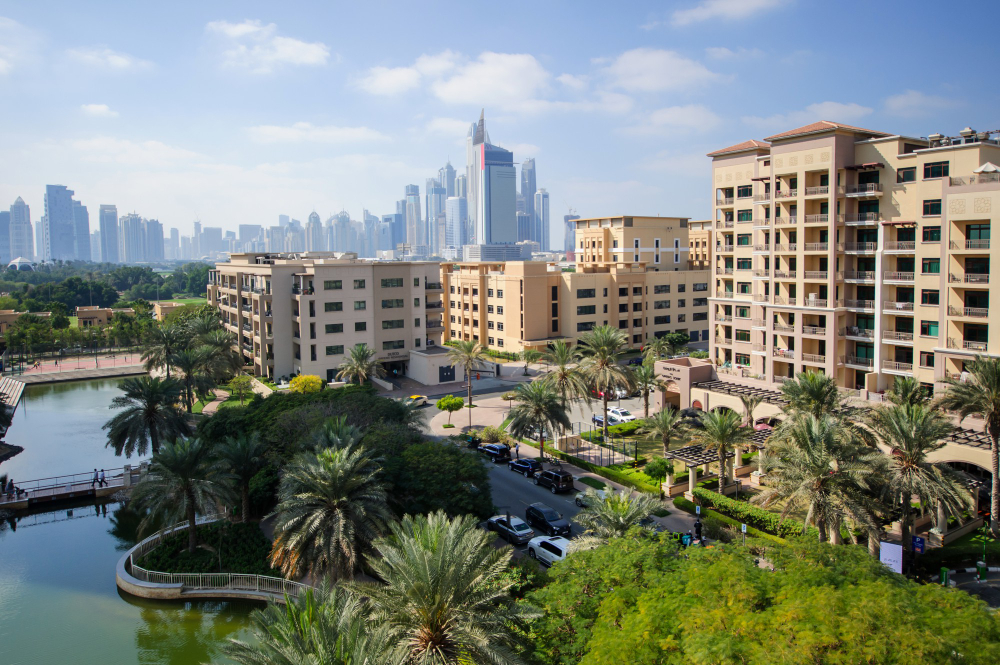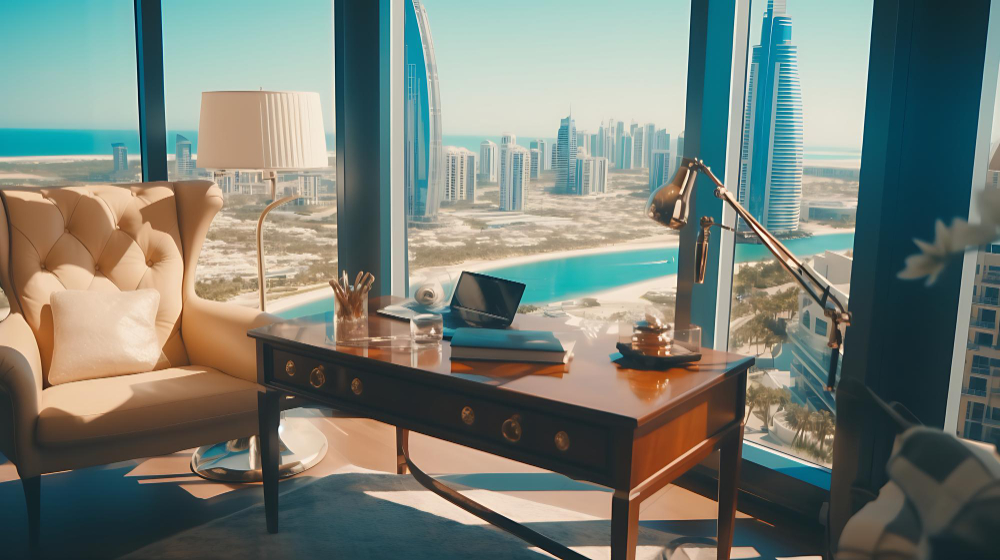Navigating the vibrant and dynamic rental market of Dubai can feel overwhelming, especially for newcomers. The city, known for its breathtaking skyline and luxurious lifestyle, offers a diverse range of apartments, each with its own unique appeal. Whether you're seeking a trendy studio in Downtown or a spacious family home in a serene community, understanding the rental landscape is crucial. This guide arms you with essential tips, tricks, and insights for renting an apartment in Dubai in 2023.
🏠 Understanding the Dubai Rental Market

Dubai's rental market is ever-evolving and caters to a wide demographic. With everything from high-end penthouses to affordable suburban apartments, it's shaped by factors such as:
- Economic Trends: Oil prices, global economic shifts, and government policy all influence rental costs.
- Seasonality: Rents often increase during cooler months when expats tend to relocate.
- Location Demand: Central neighborhoods like Downtown Dubai and Dubai Marina are more expensive due to proximity to business hubs.
🔎 Key Factors to Consider When Renting in Dubai
- Budget: Rents are usually paid annually in advance via post-dated checks.
- Location: Proximity to work, schools, transport, and lifestyle hubs is crucial.
- Property Type & Size: From studios to villas, choose according to your space and functional needs.
- Amenities: Pool, gym, parking, and security features differ greatly between buildings.
🏞️ Popular Neighborhoods for Renters in Dubai
- Downtown Dubai: Iconic landmarks, vibrant city life.
- Dubai Marina: Waterfront living, expat favorite.
- Jumeirah, Arabian Ranches, Mirdif: Ideal for families with schools, parks, and a suburban feel.
📋 The Rental Process: Step-by-Step
- Research Listings: Use platforms like Bayut, Property Finder, or agents.
- Property Viewing: Assess condition, surroundings, amenities.
- Make an Offer: Negotiate rent, number of cheques, and move-in terms.
- Documentation: Provide passport, visa, Emirates ID, proof of income.
- Sign Lease: Read the agreement carefully, clarify maintenance and payment clauses.
- Register with Ejari: Mandatory for legal protection and utility setup.
📝 Documents You Need
- Passport copy
- UAE Residence Visa
- Emirates ID
- Proof of income (salary certificate or bank statements)
- Trade License (if self-employed)
🔒 Legal Considerations & Rental Agreements

- Lease terms typically range from 12 months.
- Rent increases are regulated by RERA and depend on the rental index.
- Ensure Ejari registration to legalize your contract.
- Clarify maintenance obligations and penalties for early exit.
💡 Tips to Negotiate Rent
- Compare similar listings for bargaining power.
- Consider timing (off-season rentals may be cheaper).
- Offer longer lease duration for lower rent.
- Ask for additional perks (free maintenance, utility inclusion).
🚫 Common Pitfalls to Avoid
- Not inspecting the property thoroughly before moving in.
- Ignoring extra costs like maintenance or utilities.
- Failing to register the lease with Ejari.
- Overcommitting beyond your realistic budget.
📲 Useful Resources to Find Rentals
- Online Portals: Bayut, Dubizzle, Property Finder
- Real Estate Agents: Offer local knowledge and convenience
- Facebook Groups: Great for community advice and direct listings
📚 Conclusion: Making the Most of Your Rental Experience
Renting in Dubai is more than just a transaction; it's the beginning of a new lifestyle. With proper planning and smart decisions, you can find an apartment that fits your budget, lifestyle, and future aspirations. Whether you're a young professional, a growing family, or a solo adventurer, Dubai has the perfect rental home waiting for you.
📣 Disclaimer: The information provided in this article is based on online resources and publicly available data as of 2023. Readers are encouraged to conduct personalized research or seek professional advice before making rental decisions.




